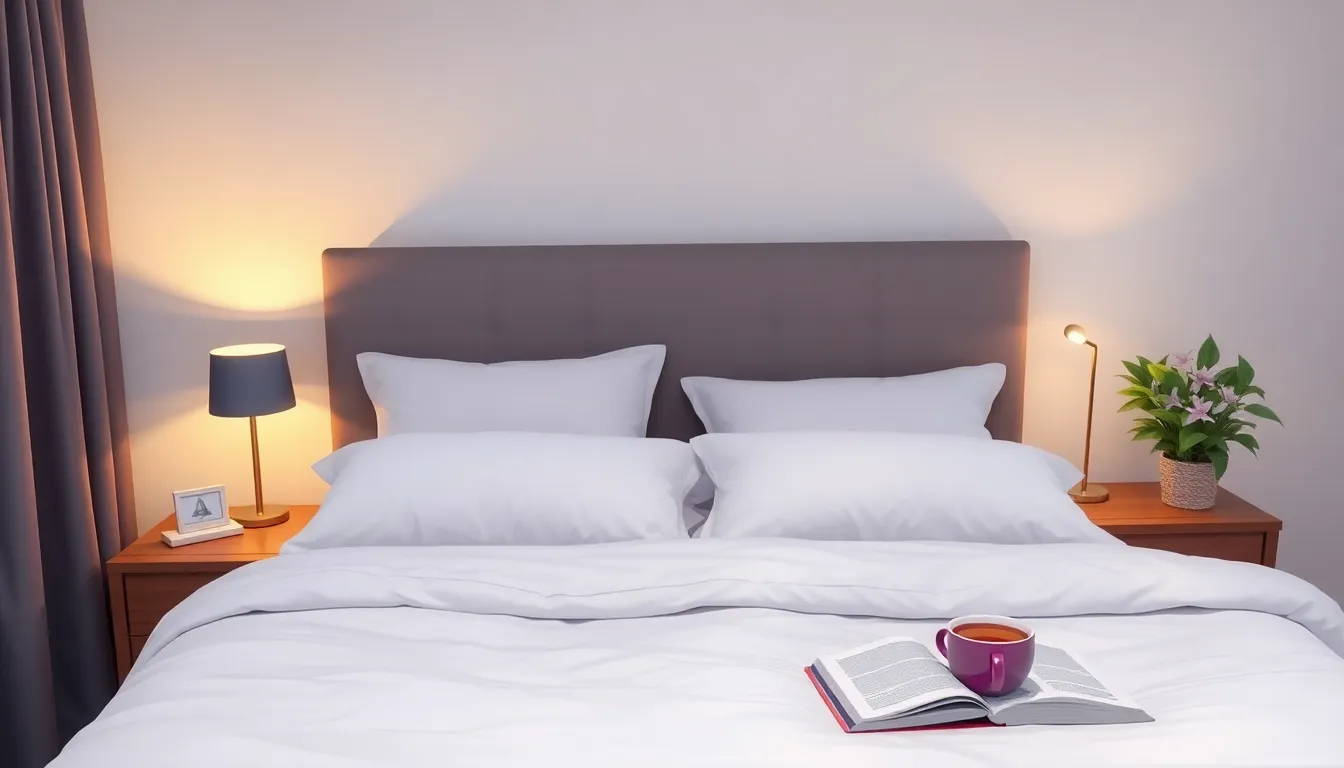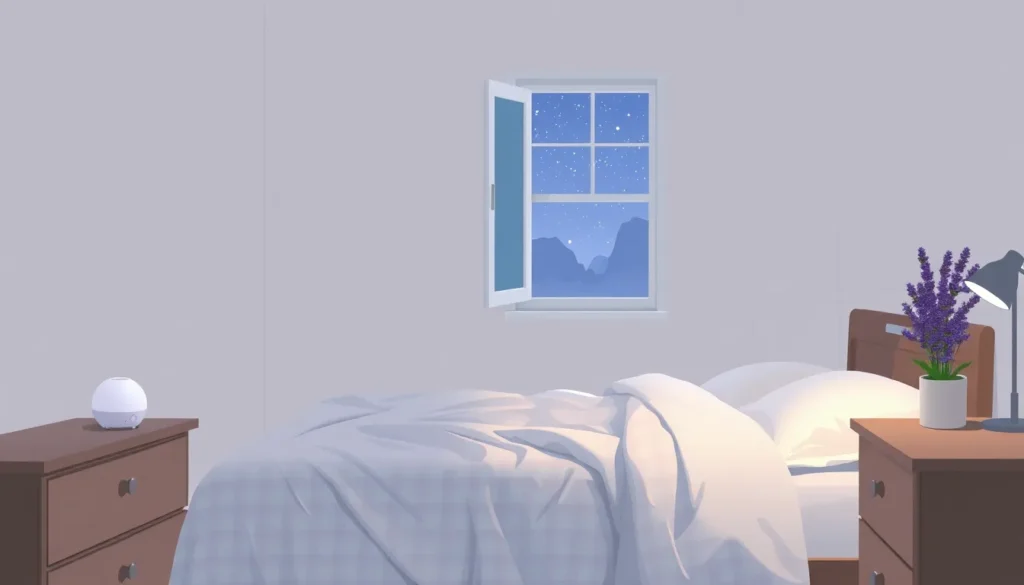Sleep can feel like a mythical creature for those with ADHD. Just when you think you’ve caught it, it slips away, leaving you wide-eyed and wondering if caffeine is a food group. The struggle is real, and it’s not just about counting sheep—it’s about finding the right strategies to help the mind wind down after a busy day.
Fortunately, there’s hope! With the right sleep tips tailored for ADHD, it’s possible to transform that restless night into a peaceful slumber. From bedtime routines that actually work to tricks that quiet the racing thoughts, these insights can help anyone reclaim their zzz’s. So grab your favorite pillow and get ready to dive into a world where sleep isn’t just a dream, but a nightly reality.
Table of Contents
ToggleUnderstanding ADHD and Sleep
Individuals with ADHD often face significant sleep challenges. Their unique neurological makeup affects how they perceive and respond to sleep.
The Connection Between ADHD and Sleep Disorders
Research indicates a high prevalence of sleep disorders among people with ADHD. Sleep apnea and restless legs syndrome rank among the most common. About 25% to 50% of children with ADHD experience sleep disturbances. Adults with ADHD also show similar patterns, leading to insomnia and disrupted sleep cycles. These disorders exacerbate ADHD symptoms, affecting attention, mood, and overall functioning.
Common Sleep Challenges in Individuals with ADHD
Restlessness often tops the list of sleep challenges for those with ADHD. Difficulty settling down and calming the mind contributes to insomnia. Racing thoughts create barriers that prevent relaxation at bedtime. Trouble maintaining a consistent sleep schedule adds to fatigue. Many individuals find that sensory sensitivities worsen during nighttime, complicating their ability to fall asleep. These factors collectively hinder restorative sleep, necessitating tailored solutions for better rest.
Effective ADHD Sleep Tips

Creating a restful sleep environment plays a crucial role for those with ADHD. The following strategies can help improve sleep quality.
Establishing a Consistent Sleep Schedule
Consistent sleep schedules aid in regulating the body’s internal clock. Going to bed and waking up at the same time every day fosters a healthier routine. Setting bedtime alerts assists in recognizing when to start winding down. Prioritizing quality sleep helps to lessen symptoms of ADHD during the day. Maintaining this pattern helps improve overall sleep hygiene, allowing for more restful nights.
Creating a Relaxing Bedtime Routine
Establishing a calming bedtime routine can signal the body that it’s time for sleep. Engaging in relaxing activities like reading or listening to soft music prepares the mind for rest. Incorporating mindfulness exercises fosters relaxation and reduces anxiety before bed. Dimming the lights helps create a serene atmosphere conducive to sleep. Consistency with these activities ultimately enhances the likelihood of falling asleep more peacefully.
Limiting Screen Time Before Bed
Reducing screen time before bedtime supports better sleep quality. Engaging with screens can disrupt melatonin production, making it harder to sleep. Setting a specific time to power down devices allows for a smoother transition into sleep mode. Altering the environment, such as positioning devices out of reach, can minimize temptations. Fostering a tech-free hour helps encourage more restful sleeping habits.
Environmental Factors for Better Sleep
Creating an optimal sleep environment significantly contributes to restful nights. Several factors within the environment influence sleep quality.
Optimizing the Sleep Environment
Keep the bedroom dark, quiet, and cool. Darkness signals the body to produce melatonin, a hormone that regulates sleep. Noise can disrupt rest, so consider using white noise machines or soft music. Controlling the room temperature to around 60-67°F enhances comfort for most individuals. Comfortable bedding and supportive mattresses also play crucial roles in promoting sleep. Incorporate calming scents like lavender or chamomile to create a serene atmosphere. Using blackout curtains can block out morning light and maintain darkness throughout the night.
The Role of Diet and Exercise in Sleep Quality
Dietary choices directly impact sleep patterns. Consuming heavy meals close to bedtime often leads to discomfort and sleeplessness. Sticking to light snacks is preferable if cravings arise. Caffeine and nicotine intake should decrease in the hours before sleep since both are stimulants. Regular physical activity benefits sleep, as it helps reduce stress and anxiety. Engaging in moderate exercise for at least 30 minutes most days enhances the chances of falling asleep faster. Timing matters; exercising in the morning or early afternoon proves more beneficial than evening workouts, which may increase alertness.
When to Seek Professional Help
Seeking professional help becomes essential when sleep issues significantly disrupt daily life for individuals with ADHD. Symptoms such as persistent insomnia, extreme fatigue, or severe mood swings warrant attention from a healthcare provider.
Identifying Severe Sleep Issues
Recognizing severe sleep issues typically starts with patterns of persistent restlessness or frequent awakenings during the night. Individuals may experience prolonged difficulty falling asleep or staying asleep. Signs such as chronic tiredness during the day and irritability often indicate deeper sleep concerns. When sleep problems interfere with daily functioning, seeking assistance becomes critical. Monitoring these patterns helps in determining if they are related to underlying ADHD symptoms or separate sleep disorders.
Exploring Treatment Options for ADHD-Related Sleep Problems
Exploring treatment options for ADHD-related sleep problems includes both behavioral and medical approaches. Cognitive-behavioral therapy (CBT) specifically designed for insomnia can provide effective solutions. Medications may also be prescribed by a doctor to manage ADHD symptoms and improve sleep quality. Consulting a sleep specialist often leads to tailored strategies based on individual needs. Additionally, lifestyle changes, such as enhanced sleep hygiene, can significantly alleviate sleep disturbances. Together, these options create a comprehensive plan to restore better sleep and overall well-being.
Finding effective sleep strategies for individuals with ADHD can lead to significant improvements in overall well-being. By implementing consistent sleep schedules and creating a calming bedtime routine, restful nights become more attainable. The right sleep environment combined with mindful dietary choices and regular exercise can further enhance sleep quality.
For those facing persistent sleep challenges, seeking professional guidance is crucial. Understanding the unique sleep needs associated with ADHD empowers individuals to take control of their sleep health. With the right approach, restful sleep is not just a dream; it can become a reality.





